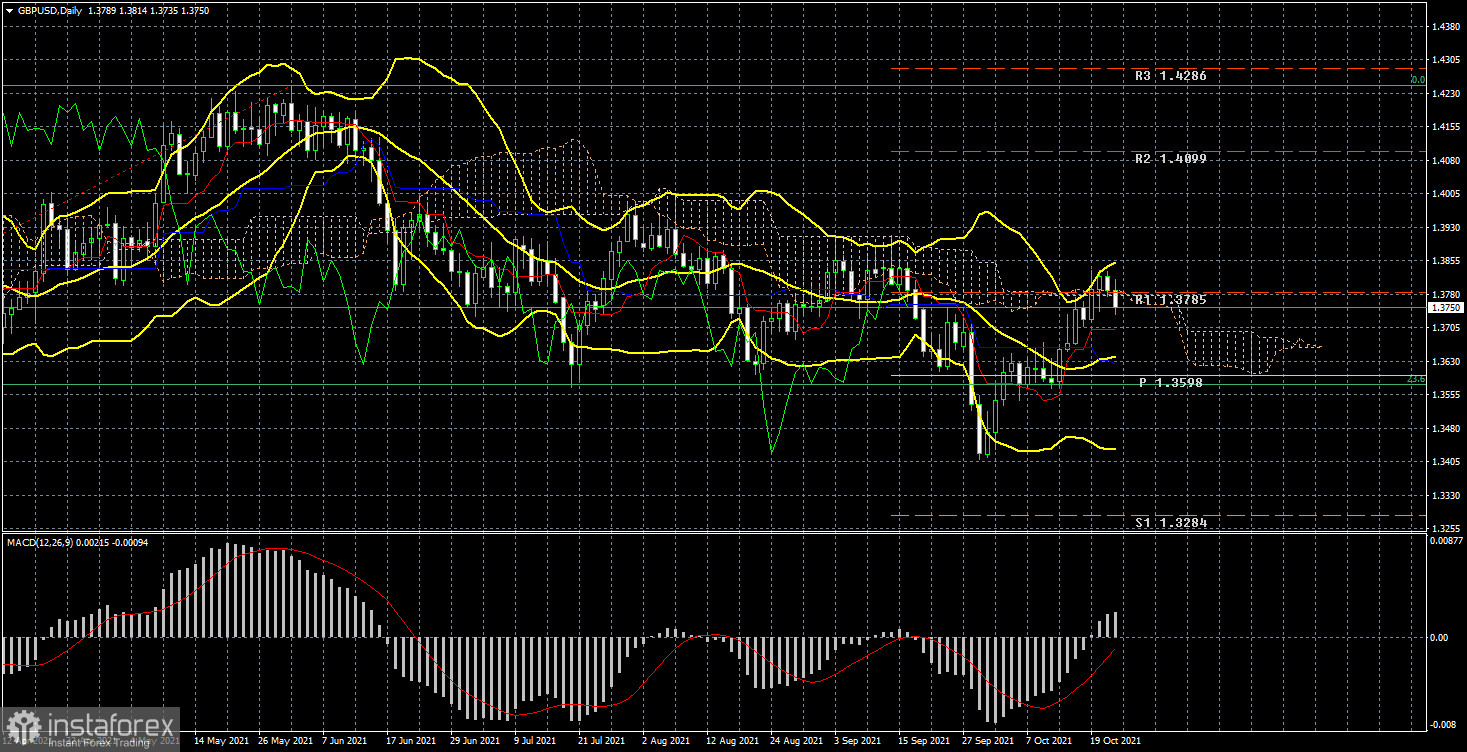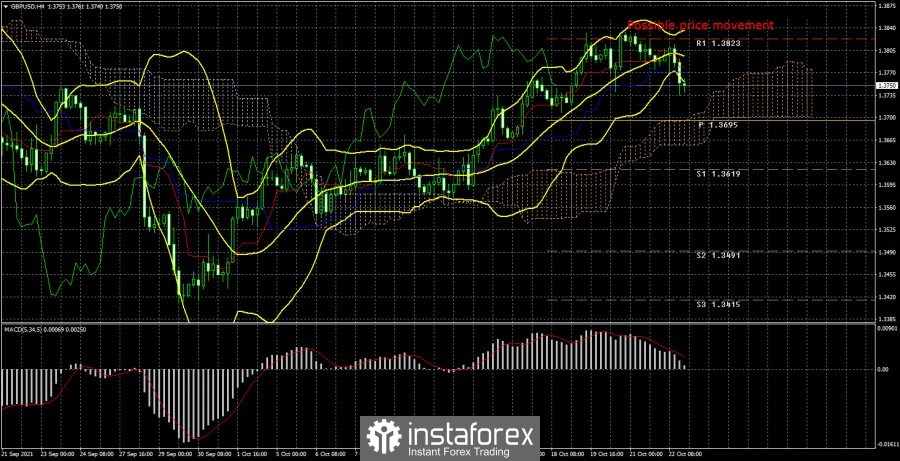
The pound/dollar pair has been in an upward movement for almost a month. Unlike the European currency. And this, from our point of view, is a very important point that should be taken into account. What does it mean? Usually in such cases, the conclusion suggests itself that at this time the pair is influenced not by US factors, but by European or British ones. That is why there is a correlation between the two main pairs, which trade very similarly most of the time. However, there are no special European or British factors in sight now. Simply put, there are no important fundamental topics in the European Union or the UK that could provide serious support to national currencies. There are important topics! Especially in the UK, which has been in a constant storm for the last five years. However, they do not have an unambiguous impact on the British pound, in which it would be possible to draw an unambiguous conclusion that these factors support or exert pressure on the currency. The UK has just experienced a "fuel crisis" and is in the midst of a much larger "logistics crisis". Simply put, Britain is facing a shortage of workers in many areas and sectors of the economy where migrant workers from Eastern European countries used to work. However, with the completion of Brexit, they all left the country and are in no hurry to return, noting that the rules for obtaining a work visa and work permit have become more complicated, so they prefer other rich European countries where they pay no less, but there is much less bureaucracy and problems. British Prime Minister Boris Johnson's government has already made two important statements. Firstly, Johnson believes that the shortage of employees will encourage employers to raise wages in problematic sectors, which will lead to the fact that sooner or later Brits will want to work as movers, waiters, drivers and so on. Secondly, realizing the scale of the current problem, the UK government hastily and under a simplified scheme began to attract workers from other countries. However, this step still did not lead to the desired results, since no one wants to go to Britain for a couple of months and "save" it from the problems that it itself provoked, and then be deported.
However, the pound is still rising, so it is impossible to draw a conclusion about the impact of the "logistical crisis" on the pound. And in general, the British pound is still getting cheaper against the dollar very reluctantly. Much weaker than the euro currency. The 24-hour timeframe also shows that over the past six months, the price has risen at least three times to the Senkou Span B line and bounced off it in previous times. How it will be this time, it will become clear next week, since at this time the price is again near the Senkou Span B line.
As for macroeconomic statistics and the "foundation". The calendar of events in the UK is almost empty next week. Thus, all attention will be focused on the US and their "macroeconomics" and "foundation". And there will be something to pay attention to here. The consumer confidence indicator will be published on Monday. Not the most important indicator, but it can have an impact on the dollar. We have the report on the change in the volume of orders for durable goods on Tuesday. It has not provoked a strong market reaction in recent months or even a year, but who knows how it will be this time?
The most important report of the week will be published on Wednesday – US GDP for the third quarter. After the economy grew by 6.7% in the second quarter, a serious slowdown to 2.2-2.3% q/q may occur in the third quarter. How will the markets react to this economic slowdown, especially ahead of the Fed meeting on November 3? There are only minor reports on Friday like changes in personal income and expenses of the US population. Thus, the topic of the Fed's QE program is still the most important and the GDP report will pass through the prism of this event. If GDP declines even more in the third quarter than analysts expect, then the US currency may get a new "punch in the gut". And that's all the pound needs. It became cheaper very reluctantly against the dollar and at a time when all factors were talking against it. And if the statistics from overseas are weak, then this will further increase the bullish mood for the pound/dollar pair.
From a technical point of view, as we have already said, everything will depend on one more crossing of the Senkou Span B line. At the end of last week, the pair's quotes seemed to have overcome this line, but then they still fell below it, so now it is absolutely unclear how to interpret this moment. Either a false breakout, after which the downward movement will resume, or consolidation above the Ichimoku cloud, in which the upward movement will resume after a slight correction. So far, the downward trend in the pound still persists, but it does not look like a trend. The corrections against it are very deep, so the global upward trend, which has been going on for a year and a half, can resume at any moment.

Recommendations for the GBP/USD pair:
The pound/dollar pair on the 4-hour timeframe began to correct at the end of last week and settled below the critical Kijun-sen line. Therefore, at the moment we can say that the correction has begun and can continue to the Senkou Span B line, which lies exactly at the level of 1.3700. A rebound from this line can provoke the resumption of the upward movement, which will fully correspond to the technical picture on the 24-hour timeframe. It will be possible to sell the pound with 1.3619 as the target if the bears manage to pull the pair through the Ichimoku cloud.
Explanations for illustrations:
Price levels of support and resistance (resistance/support), Fibonacci levels are levels that are targets when opening long or short positions. You can place Take Profit levels near them.
Indicators Ichimoku (standard settings), Bollinger Bands (standard settings), MACD (5, 34, 5).
 English
English 
 Русский
Русский Bahasa Indonesia
Bahasa Indonesia Bahasa Malay
Bahasa Malay ไทย
ไทย Español
Español Deutsch
Deutsch Български
Български Français
Français Tiếng Việt
Tiếng Việt 中文
中文 বাংলা
বাংলা हिन्दी
हिन्दी Čeština
Čeština Українська
Українська Română
Română

